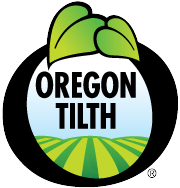OVERVIEW
The Farm Bill is one of the largest and most complicated pieces of federal legislation in the United States. And with over $100 billion dollars of funds, it presents the best opportunity we have for reshaping our food system to increase environmental sustainability, stimulate economic growth and protect public health.
The Challenge
As the principal piece of legislation for food and agriculture, the Farm Bill generates tremendous attention from hundreds of special interest groups fighting to preserve and progress funding priorities. Unfortunately, the bill’s slow modernization from its Great Depression era roots continues to favor subsidies over food security, conservation and research for sustainable practices.
As our political discourse becomes increasingly focused on financial shortages, the Farm Bill is under great pressure to cut costs whenever possible. And while it is imperative to protect food stamp and nutrition programs for families in need, a more comprehensive view of our national food security in the face of climate change is necessary. Energy, water quality and organic research are often the first programs targeted for financial cuts; however, we need to invest in sustainable agriculture innovations with historic drought levels in the Western United States where more than 90 percent of staple vegetable and fruit crops like broccoli, lettuces and berries are grown.
Additionally, the Farm Bill requires constant care to monitor program implementations and funding distribution for agreed upon projects. Several areas of funding are generalized in the initial policy, requiring organizations to step forward to channel dollars to support organic agriculture, help beginning farmers and stabilize regional food systems.
The Opportunity
Oregon Tilth is widely recognized for a holistic and partnership-driven approach to policy recommendations. We bring together business, environmental, agricultural and non-profit representatives to help inform visionary policies with sensible strategies for application.
In coordination with the National Sustainable Agriculture Coalition, Organic Farming Research Foundation and others, we work to share real, on-the-ground stories with legislators. Our staff and coalition of advocates offer technical expertise in a wide range of specialties from dairy to vegetable production, soil health to market analysis.
We believe there are great opportunities to apply conservation requirements to Farm Bill funding measures such as crop insurance. All opportunities to bring benefits to growers and a productive food future by eliminating harmful environmental degradation such as soil erosion and water pollution must be explored. Other measures such as cost-share for certified organic growers recognizes environmental stewardship as a valuable investment, giving small business owners much needed financial support to access new markets. While we’ve seen modest gains for public investment in organic practices, a big increase in funding for research, data collection, education and technology are necessary for a secure food system vulnerable to a changing climate.
